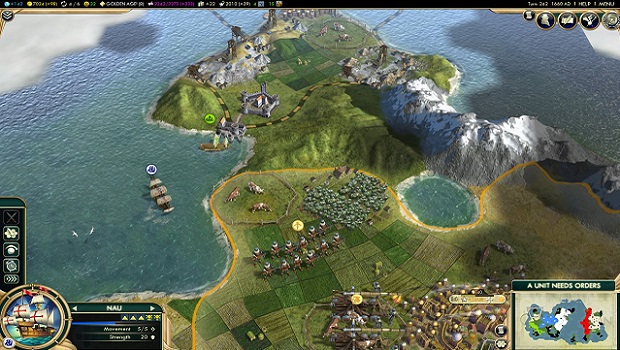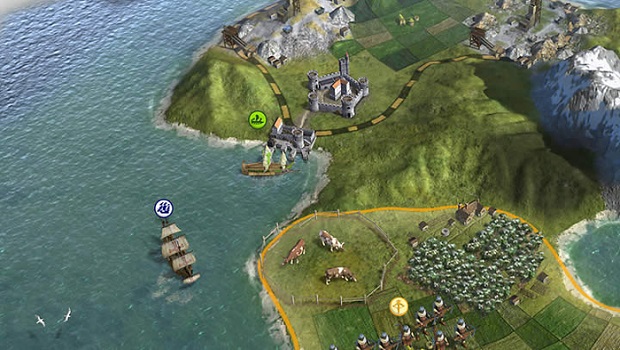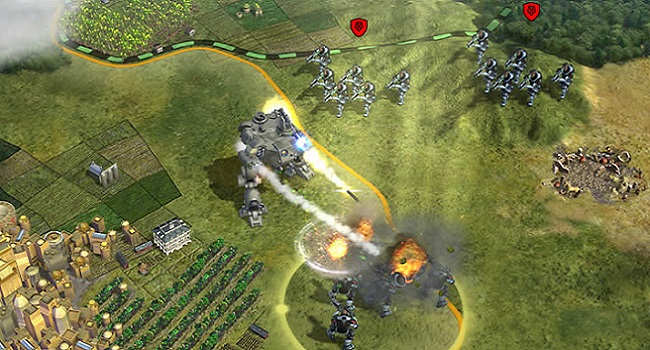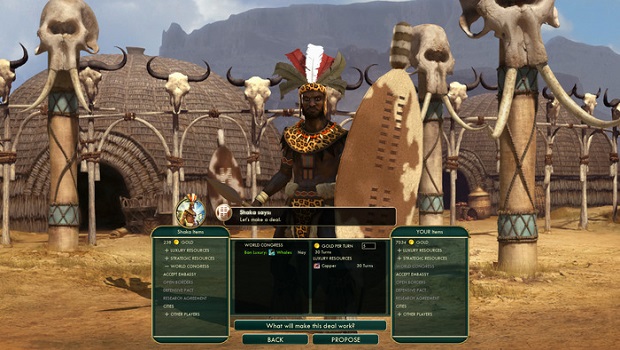Civilization is about more than conquest. I’d like to think so, anyway. If all humanity has to offer is war and death, we might as well give up the ghost and push that big red button right now. Sid Meier’s Civilization V, supposedly a reflection of the development of humanity through the ages, has generally always been about war. Sure, there were other ways to win, like building a shuttle to get into space, or getting the most votes at the World Congress, but most of them involved, by necessity, a massive production advantage over enemies that were weakened by (you guessed it) war. The newest expansion to Civilization V, Brave New World, seeks to rectify the game’s jingoistic reality by providing incentives to avoid conquest, appealing to the pacifists among us to find a new way to win.
Brave New World upgrades the Civilization V template by adding three key elements. The first is tourism. Over time, your civilization will build wonders and spawn great men of the arts via culture. These wonders, and the works created by those great men, will spawn both culture and tourism. People will come to visit your civilization to be awed by its works and to envy what your people have built through all of history. Archeologists may also dig up artifacts from the past, leading to great boosts to your tourism. Having greater levels of tourism than other civilizations will cause you to culturally dominate them. Dominate everyone, and you’ll win the game.
The second big addition is a complete revamp of the trade systems. You may now build caravans and cargo ships, and use these to create a number of trade routes (the number is limited by your tech level). Each trade route will generate money for both parties involved (you can also create trade routes between your own cities, to increase production or food levels), along with spreading technology and religion. I found the trade routes to be massive money makers; I’ve never had so much cash to spend during a game. The longer routes, routes to bigger cities and to cities with luxuries generated even more money, making it well worth it to explore to find the best options. Long routes are open to interdiction by your enemies, but, running a peace loving civilization, I didn’t seem to mind.
Lastly, the game adds a world congress. This is the United Nations of all civilizations, which votes on policies, enacts sanctions, and generally fleshes out the diplomatic side of the game. This is Brave New World’s most successful addition. Ramming your policies through is no easy feat, requiring alliances with city states, the proper ideological alignments, and good relations with other civilizations. The political realm makes the world feel a lot more alive and like there’s a lot more going on than simply conquest. World fairs and Olympics make you feel like part of an international community and not merely an actor in an endless war.
And so, with these options in my pocket, I started my game to win without conducting a single offensive war, something which over the course of every single Civilization game and expansion, I have never, ever attempted. Selecting Brazil, I founded an empire dedicated to peace, trade and tourism. Sadly, I found myself sharing a border with Attila the Hun, who attacked me twice (finding himself on the losing side both times), but other than the Hunnic Hordes, I had conflicts with no one. I concentrated on establishing trade routes, building wonders, and maxing out my culture at every opportunity. Brazil was a cultural powerhouse. And yet, the longer I played, the more I noticed the creeping feeling in the back of my mind.
For the first time in a game of Civilization, I was bored.
Removing the war hawk option left me with little reason to do anything except move workers around and update city production. Many turns, I was left with nothing to do at all. Since I wasn’t out conquering the world, I only had six or seven cities to manage, and plenty of workers to build all the necessary improvements. Eventually, even my workers ran out of things to do. As I moved into the modern times, I could build archaeologists to dig up wonders from the past, but there weren’t that many, and the depth to the system is insubstantial. I was able to win, eventually, as my high culture made my civilization the envy of all the world. All the envy, perhaps, except mine own.
This isn’t to say that the expansion is broken in some aspect. And perhaps my own Napoleonic desires shine through with a world to harvest that I’m simply not allowed to attack. But in comparison to some of the other options for victory, winning through tourism just isn’t that interesting.
I was, however, more enthralled by the two new scenarios. As a huge Civil War aficionado, I was tickled blue and gray by the new American Civil War Scenario. Seeing the Eastern theater of the war modeled out in Civilization V style was a treat, and some of the ideas presented in the game were very cool. Infantry units begin “green” and after their first battle are assigned a historical general, giving them a unit boost or penalty depended on that general’s real life performance. It’s a cool bit of color (though when your unit gets a -1 movement penalty because the general was known for slowness, you will curse). There was some weirdness–much of the railways portrayed in the game were outside of the city zones of control, meaning that after taking one city, I could instantly begin shipping my troops right next to the gates of the next city–but generally, the period flavor shined through, and the scenario was a joy.
So, at the end, I’m torn. Perhaps I’m too war-like for this sort of expansion. But the tourism option doesn’t have a lot of appeal to me. I would rather fight through the quirky version of the Civil War than attempt another Tourism victory. Still, the trade options are compelling, and perhaps the AI has more of a fighting chance if it can attempt to win through non-military means. Either way, my next playthrough will have conquest as my modus operandi. If you want tourism, you can visit the sites of my victories.



